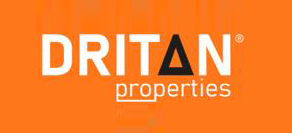home-locksmith9799
home-locksmith9799
Guide To House Lock Options: The Intermediate Guide In House Lock Options
An In-Depth Guide to House Lock Options: Ensuring Your Home’s Security
Security is a paramount concern for property owners, and one of the first lines of defense in safeguarding a house is the lock. With numerous kinds of locks readily available in the market, choosing the ideal one can be intimidating for many. This article will look into the various kinds of house lock options, their features, advantages, and elements to consider when picking the perfect lock for your home. Additionally, we will supply responses to some frequently asked questions to help clarify any uncertainties.
Types of House Locks
When it concerns house locks, there’s a wide selection of options tailored to suit various needs and preferences. Below is an in-depth overview of the most common kinds of locks.
1. Deadbolt Locks
Deadbolt locks are extensively acknowledged for their strength and security. They have a solid metal bolt that extends into the door frame, making them more resistant to forced entry.
- Single Cylinder Deadbolts: Operate with a key on the outdoors and a turn knob on the inside.
- Double Cylinder Deadbolts: Require a key for both the exterior and interior; much better for doors with glass panels.
2. Knob Locks
Knob locks are typically set up on residential doors; however, they are typically used in conjunction with deadbolts for improved security.
- Advantages: Easy to install and use.
- Drawbacks: More vulnerable to selecting and required entry.
3. Lever Handle Locks
Levers are easier to open than knobs, which can be beneficial for individuals with movement issues.
- Types:
- Privacy Locks: Used for bed rooms and restrooms.
- Keyed Levers: Provide improved security for outside doors.
4. Smart Locks
Smart locks use advanced technology and benefit, enabling house owners to manage access to their homes via mobile phones or keypads.
- Features:
- Remote access
- Combination with home automation systems
- Momentary gain access to codes for guests
5. Chain Locks
Chain locks include an additional layer of security by enabling a door to be slightly opened while still being protected.
- Best for: Residential doors where a little presence is required without complete gain access to.
6. Mortise Locks
Mortise locks are more intricate and typically utilized in business settings; nevertheless, they can also be installed in homes.
- Advantages: High-security features and resilience.
Contrast Table of Common House Lock Options
| Lock Type | Security Level | Typical Use | Benefits | Disadvantages |
|---|---|---|---|---|
| Deadbolt | High | External doors | Strong and tamper-resistant | Requires professional installation |
| Knob Lock | Medium | Interior/external doors | Easy installation | Less protected on its own |
| Lever Handle | Medium | Interior/external doors | User-friendly, accessible | Prone to forced entry |
| Smart Lock | High | External doors | Remote gain access to, practical | Dependence on technology |
| Chain Lock | Low | Secondary security | Basic and efficient for visibility | Low security level |
| Mortise Lock | High | Business and residential | Durable, high security | More expensive and complex |
Factors to Consider When Choosing a Lock
When selecting a lock for your house, it is necessary to evaluate several aspects to guarantee you select the ideal type for your home’s security requirements.
1. Security Needs
- Assess the criminal offense rate in your neighborhood.
- Consider the worth of items you need to secure.
2. Kind of Door
- Ensure the lock type you choose is compatible with your door product (wood, metal, fiberglass).
3. Relieve of Use
- Consider member of the family’ requirements, such as children or elderly people who may need easier access.
4. Installation
- Determine whether you want a lock that needs professional installation or if you prefer an easier DIY choice.
5. Budget plan
- Factor in the cost of the lock, consisting of installation if required. Smart locks tend to be more pricey but provide innovative functions.
Regularly Asked Questions (FAQs)
Q1: Are smart locks safe?
A1: Yes, wise locks can be safe if set up correctly and updated regularly. Ensure they have robust encryption and consider establishing two-factor authentication for included security.
Q2: Which lock is best for an exterior door?
A2: A deadbolt lock or a smart lock is perfect for exterior doors due to their boosted security functions.
Q3: Can I install a deadbolt myself?
A3: Yes, deadbolt locks can be set up as a DIY project; nevertheless, it needs accurate measurements and tools. Employing a professional might guarantee better security and fit.
Q4: How do I maintain my locks?
A4: Regularly examine your locks for rust or wear. Oil them with graphite powder at least once a year and make sure no particles is obstructing the mechanism.

Q5: What should I do if my key breaks inside the lock?
A5: Contact a locksmith for assistance. Trying to get rid of a damaged key yourself may harm the lock and make it more challenging to repair.
Choosing the ideal house lock is critical for securing your home. With different options available, including deadbolts, smart locks, and more, property owners must examine their security priorities, ease of use, and budget to make an informed decision. By comprehending the strengths and weaknesses of each kind of lock and considering the particular requirements of your home, you can confidently fortify your residence against potential invasions. As making sure home security is a diverse process, constantly consider seeking advice from a locksmith for expert guidance customized to your special circumstance.

